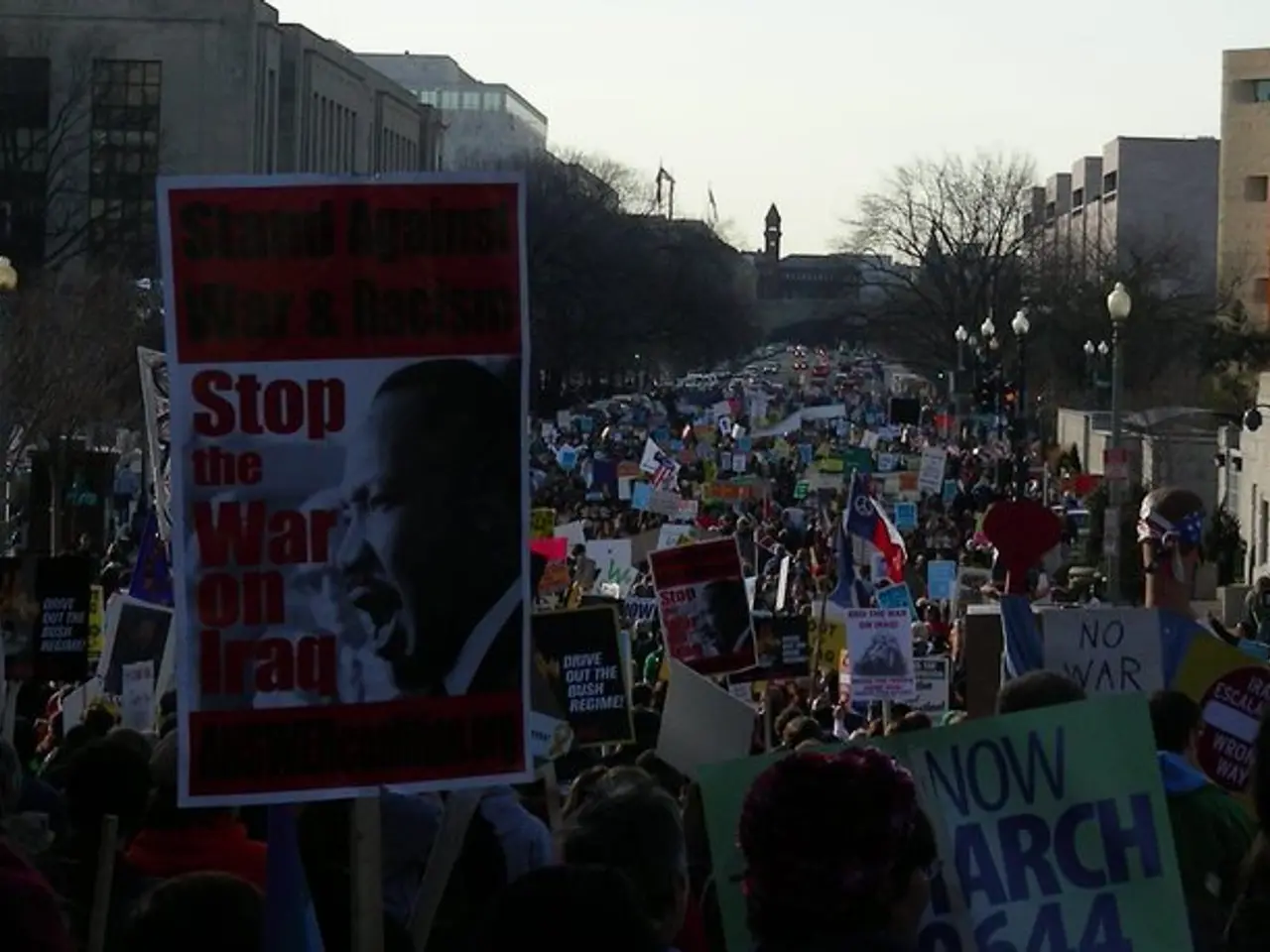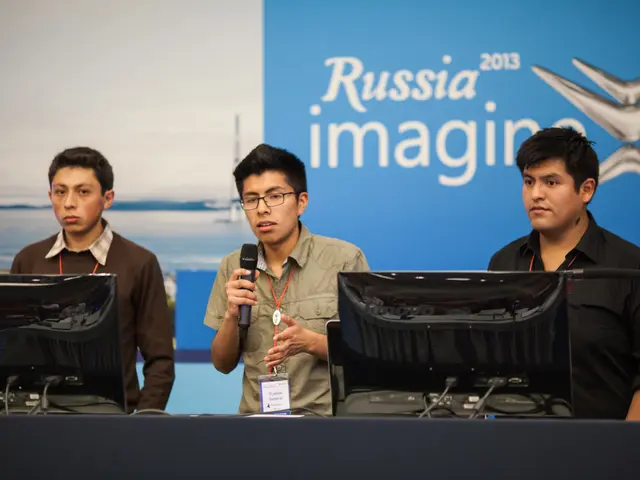Survival of Lukashenko's Regime Confirmed
In August 2020, Belarus held presidential elections that were widely condemned as fraudulent, with incumbent Alexander Lukashenko declared the winner. This decision sparked massive protests throughout the country, marking the largest mobilization against the regime in Belarusian history[1][2][3].
Svetlana Tikhanovskaya, the opposition candidate who stepped up after her husband was barred from the election, became the central figure of the opposition movement. Claiming victory based on independent polling suggesting she received about 56% of the vote, Tikhanovskaya called for new, free elections and emerged internationally as a symbol of Belarusian democracy and resistance[2][3].
The regime's response to the protests was severe and brutal. Security forces used widespread violence, including torture, arrests, forced disappearances, and there were over a dozen confirmed deaths among protesters. This crackdown succeeded in dispersing protests but left Belarus under a deeply repressive, securitized system[1][3].
In the aftermath, hundreds of thousands of Belarusians fled the country due to repression and instability. Those remaining live under increased authoritarian control; freedom of press and political opposition have been severely curtailed. Lukashenko has retained power largely through support from security forces, the elite, and crucially, from Russia[1][4].
Belarus's international relations, especially with the EU and the US, deteriorated significantly. Domestic dissent survives largely in exile or underground opposition, with Tikhanovskaya continuing to advocate from abroad[1][2][3][5].
Five years on, Lukashenko won another heavily contested election in 2025, with continued Russian backing reaffirming his grip on power, while the democratic opposition remains determined but weakened[4].
Lukashenko has tried to seek legitimacy through negotiations with the West, releasing political prisoners in exchange for "concessions" that do not yet exist. Since November 1, 2020, participation in protests has been punishable by law in Belarus.
In 2020, 41 percent of Belarus's exports went to the EU, while 98 percent now go to Russia. If Belarus has to pay back its loans, it could lead to the collapse of Lukashenko's economy. The government in Belarus is heavily dependent on Russia, with the regime's dependence strengthened by loans that Lukashenko has taken from Russia.
In summary, Tikhanovskaya emerged as the opposition leader post-2020 election; the regime responded with violent repression; and Belarusian society has been deeply impacted by emigration, repression, and political stalemate, with the country increasingly reliant on Russia for political and economic support[1][2][3][4].
References:
- BBC News. (2021, August 9). Belarus: Five years since the disputed election of Alexander Lukashenko. Retrieved from https://www.bbc.com/news/world-europe-58156647
- The Guardian. (2020, August 10). Belarus election: Svetlana Tikhanovskaya claims victory after Alexander Lukashenko declared winner. Retrieved from https://www.theguardian.com/world/2020/aug/10/belarus-election-svetlana-tikhanovskaya-claims-victory-after-alexander-lukashenko-declared-winner
- Human Rights Watch. (2021). Belarus: Five Years After Fraudulent Election, Repression Continues. Retrieved from https://www.hrw.org/news/2021/08/09/belarus-five-years-after-fraudulent-election-repression-continues
- Radio Free Europe/Radio Liberty. (2021, August 9). 5 Years After Belarus's Disputed Election, Lukashenka's Grip On Power Remains Firm. Retrieved from https://www.rferl.org/a/5-years-after-belarus-disputed-election-lukashenkas-grip-on-power-remains-firm/31582003.html
- Amnesty International. (2020). Belarus: Mass arrests, torture and other ill-treatment of protesters in Belarus. Retrieved from https://www.amnesty.org/en/latest/news/2020/10/belarus-mass-arrests-torture-and-other-ill-treatment-of-protesters-in-belarus/
- The policy-and-legislation response to the August 2020 Belarus protests, such as the law punishing protest participation, has led to a rise in general-news reports about the exile and underground opposition.
- Migration out of Belarus following the 2020 elections and subsequent violent crackdowns by the government has been significantly affected by war-and-conflicts and politics within the country, with many Belarusians seeking refuge abroad.
- As Belarus's international relations with the EU and US deteriorate, policy-and-legislation efforts to restrict political opposition and freedom of press have increased, further impacting the migration and resistance movements in the country.






